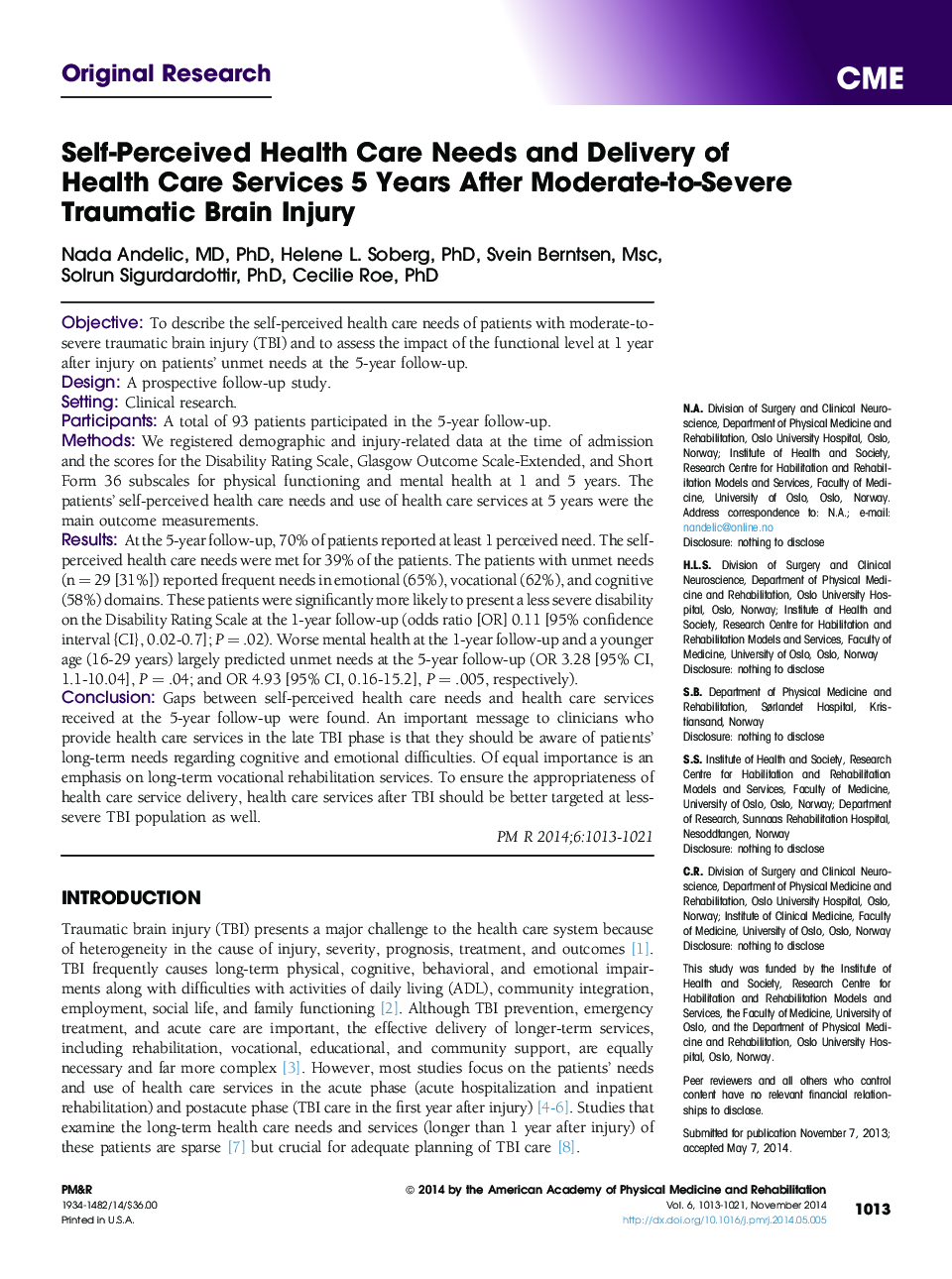| کد مقاله | کد نشریه | سال انتشار | مقاله انگلیسی | نسخه تمام متن |
|---|---|---|---|---|
| 2707017 | 1144836 | 2014 | 9 صفحه PDF | دانلود رایگان |
ObjectiveTo describe the self-perceived health care needs of patients with moderate-to-severe traumatic brain injury (TBI) and to assess the impact of the functional level at 1 year after injury on patients' unmet needs at the 5-year follow-up.DesignA prospective follow-up study.SettingClinical research.ParticipantsA total of 93 patients participated in the 5-year follow-up.MethodsWe registered demographic and injury-related data at the time of admission and the scores for the Disability Rating Scale, Glasgow Outcome Scale-Extended, and Short Form 36 subscales for physical functioning and mental health at 1 and 5 years. The patients' self-perceived health care needs and use of health care services at 5 years were the main outcome measurements.ResultsAt the 5-year follow-up, 70% of patients reported at least 1 perceived need. The self-perceived health care needs were met for 39% of the patients. The patients with unmet needs (n = 29 [31%]) reported frequent needs in emotional (65%), vocational (62%), and cognitive (58%) domains. These patients were significantly more likely to present a less severe disability on the Disability Rating Scale at the 1-year follow-up (odds ratio [OR] 0.11 [95% confidence interval {CI}, 0.02-0.7]; P = .02). Worse mental health at the 1-year follow-up and a younger age (16-29 years) largely predicted unmet needs at the 5-year follow-up (OR 3.28 [95% CI, 1.1-10.04], P = .04; and OR 4.93 [95% CI, 0.16-15.2], P = .005, respectively).ConclusionGaps between self-perceived health care needs and health care services received at the 5-year follow-up were found. An important message to clinicians who provide health care services in the late TBI phase is that they should be aware of patients' long-term needs regarding cognitive and emotional difficulties. Of equal importance is an emphasis on long-term vocational rehabilitation services. To ensure the appropriateness of health care service delivery, health care services after TBI should be better targeted at less-severe TBI population as well.
Journal: PM&R - Volume 6, Issue 11, November 2014, Pages 1013–1021
